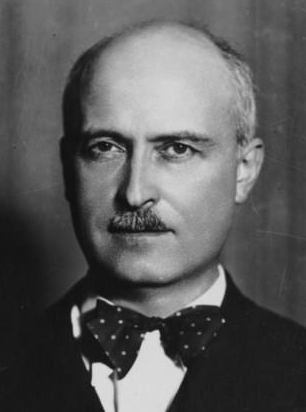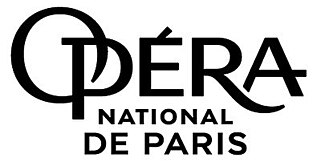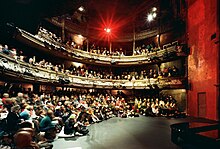
Jean-Baptiste Poquelin, known by his stage name Molière, was a French playwright, actor, and poet, widely regarded as one of the great writers in the French language and world literature. His extant works include comedies, farces, tragicomedies, comédie-ballets, and more. His plays have been translated into every major living language and are performed at the Comédie-Française more often than those of any other playwright today. His influence is such that the French language is often referred to as the "language of Molière".

Peter Stephen Paul Brook was an English theatre and film director. He worked first in England, from 1945 at the Birmingham Repertory Theatre, from 1947 at the Royal Opera House, and from 1962 for the Royal Shakespeare Company (RSC). With them, he directed the first English-language production in 1964 of Marat/Sade by Peter Weiss, which was transferred to Broadway in 1965 and won the Tony Award for Best Play, and Brook was named Best Director. He also directed films such as an iconic version of Lord of the Flies in 1963.

Jacques François Antoine Marie Ibert was a French composer of classical music. Having studied music from an early age, he studied at the Paris Conservatoire and won its top prize, the Prix de Rome at his first attempt, despite studies interrupted by his service in World War I.

The Paris Opera Ballet is a French ballet company that is an integral part of the Paris Opera. It is the oldest national ballet company, and many European and international ballet companies can trace their origins to it. It is still regarded as one of the four most prominent ballet companies in the world, together with the Bolshoi Ballet in Moscow, the Mariinsky Ballet in Saint Petersburg and the Royal Ballet in London.

The Théâtre des Champs-Élysées is an entertainment venue standing at 15 avenue Montaigne in Paris. It is situated near Avenue des Champs-Élysées, from which it takes its name. Its eponymous main hall may seat up to 1,905 people, while the smaller Comédie and Studio des Champs-Élysées above the latter may seat 601 and 230 people respectively.

Georges Corraface is a French actor of Greek descent, born on December 7, 1952, in Paris, France. He performed in film and television, following many years in French theatre, notably as a member of the International Center for Theatre Research under the direction of Peter Brook in the Peter Brook Company. His notable film credits include To Tama, Escape from L.A., La Pasión Turca, Vive La Mariée, Impromptu, Christopher Columbus, A Touch of Spice, and a feature film debut in The Mahabharata. His most popular television appearances include La Bicyclette Bleue, L'Été Rouge in France, The Young Indiana Jones Chronicles in the USA and Drifting Cities in Greece.

The Paris Opera is the primary opera and ballet company of France. It was founded in 1669 by Louis XIV as the Académie d'Opéra, and shortly thereafter was placed under the leadership of Jean-Baptiste Lully and officially renamed the Académie Royale de Musique, but continued to be known more simply as the Opéra. Classical ballet as it is known today arose within the Paris Opera as the Paris Opera Ballet and has remained an integral and important part of the company. Currently called the Opéra national de Paris, it mainly produces operas at its modern 2,723-seat theatre Opéra Bastille which opened in 1989, and ballets and some classical operas at the older 1,979-seat Palais Garnier which opened in 1875. Small scale and contemporary works are also staged in the 500-seat Amphitheatre under the Opéra Bastille.
The International Centre for Theatre Research, sometimes also known as The International Centre for Theatre Creation, was founded in 1970 by Peter Brook and Micheline Rozan. It is often abbreviated to the acronym CIRT, as in French the group is called the Centre International de Recherche Théâtrale. The centre is a multicultural theatrical research and production company based out of the Bouffes du Nord theatre in Paris since 1974.

Émile Louis Fortuné Pessard was a French composer.
Maurice Thiriet was a French composer of classical and film music.
Irina Brook is a Franco-British stage director, producer, and actress. She was named Chevalier des Arts et des Lettres in 2002 by the French Ministry of Culture. In May 2017 Brook was upgraded to Officier de l'ordre des Arts et Lettres and awarded the Légion d'honneur.
Jewels is a three-act ballet created for the New York City Ballet by co-founder and founding choreographer George Balanchine. It premièred on Thursday, 13 April 1967 at the New York State Theater, with sets designed by Peter Harvey and lighting by Ronald Bates.
Jérôme Deschamps is an actor, director and stage author, as well as a cinema actor and director associated with the Famille Deschiens troupe founded by Macha Makeïeff in 1978. In 2003 he was appointed artistic director of the Théâtre national de Nîmes, leaving that post for the equivalent at the Théâtre national de l'Opéra-Comique in June 2007, where he remained until 2015.
Alain Maratrat is French actor, theater and opera director known for his innovative interpretations and staging. He has shared his longtime exploration of the body as an instrument of theatrical expression through workshops and classes for actors, dancers, and singers, throughout the world. He was a winner of a Golden Mask award in 2006, as director of the opera Il Viaggio a Reims.

Pascal Rambert is a French writer, choreographer, and director for the stage and screen. He was born in 1962.

Marie-Hélène Estienne is a French playwright and screenwriter, probably best known for her collaborations with the British director Peter Brook and the International Centre for Theatre Research at the Théâtre des Bouffes du Nord in Paris.
The Prix du Brigadier, established in 1960 by the Association de la Régie théâtrale (ART), is an award given to a personality from the world of theater.
Bernard Deletré is a French operatic bass-baritone.

Stéphane Lissner is a French theatre director. He was the artistic director of the Teatro alla Scala in Milan, Italy, from 2005 to 2014 and the director of the Paris Opera from 2014 to 2020.

Alexis Michalik is a Franco-British actor, scriptwriter and director. He adapted Shakespeare's Romeo and Juliet into his play R & J and he has written and staged his own plays, including Le Porteur d'histoire, Le Cercle des illusionnistes, Edmond and Intra Muros. He has acted in a number of films, including Sagan by Diane Kurys and Le Chant du loup by Abel Lanzac and he has acted in a number of TV series, mini-series, and TV films, including the series Kaboul Kitchen by Allan Mauduit and Jean-Patrick Benes. He has received various Molière awards for his plays.














